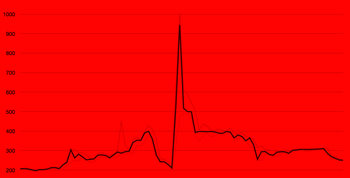
Sell Before Buy
Freeriding most commonly occurs when you buy a stock first and then sell another stock to raise money to pay for it. This is the incorrect order as you must be sure that you are able to sell the stock at the price you anticipate before you buy anything with the proceeds. Investors that freeride may have restrictions placed on their account such as having to wait several days for sales to settle before buying anything with the proceeds. It is also possible to have your account completely frozen for a set period of time as a penalty. Freeriding is inherently risky and could cause market instability if not managed by market regulators and brokers.Buy And Quick Sell
An investor may be tempted to buy a stock without the capital required to pay for it and then quickly sell it so that the settlement dates of the buy and sell are close together. They might hope their broker will simply take the proceeds of the sell to cover the buy and not worry that their wasn't ever any capital available to cover the trade. This is considered an illegal trade in most jurisdictions and your broker may take action to freeze your account. In many cases, a broker will prevent this trade from executing in the first place.Margin Account
A margin account is a trading account that is attached to lending from your broker. This credit can be used to prevent triggering a freeriding violation as long as it covers the entire cost of a trade.New Securities Issue
Freeriding is also used to describe an investment bank or other member of a underwriting syndicate that holds back part of a new securities issue such as an IPO to sell later at a higher price. This is an illegal practice in many jurisdictions.| Overview: Freeriding | ||
Type | ||
Definition (1) | Purchasing a stock or security without the cash to pay for it. | |
Definition (2) | An underwriting syndicate that holds back part of a new securities issue to sell later at a higher price. | |
Also Known As | Freeriding violation | |
Not To Be Confused With | Free riding (economics) | |
Related Concepts | ||


























